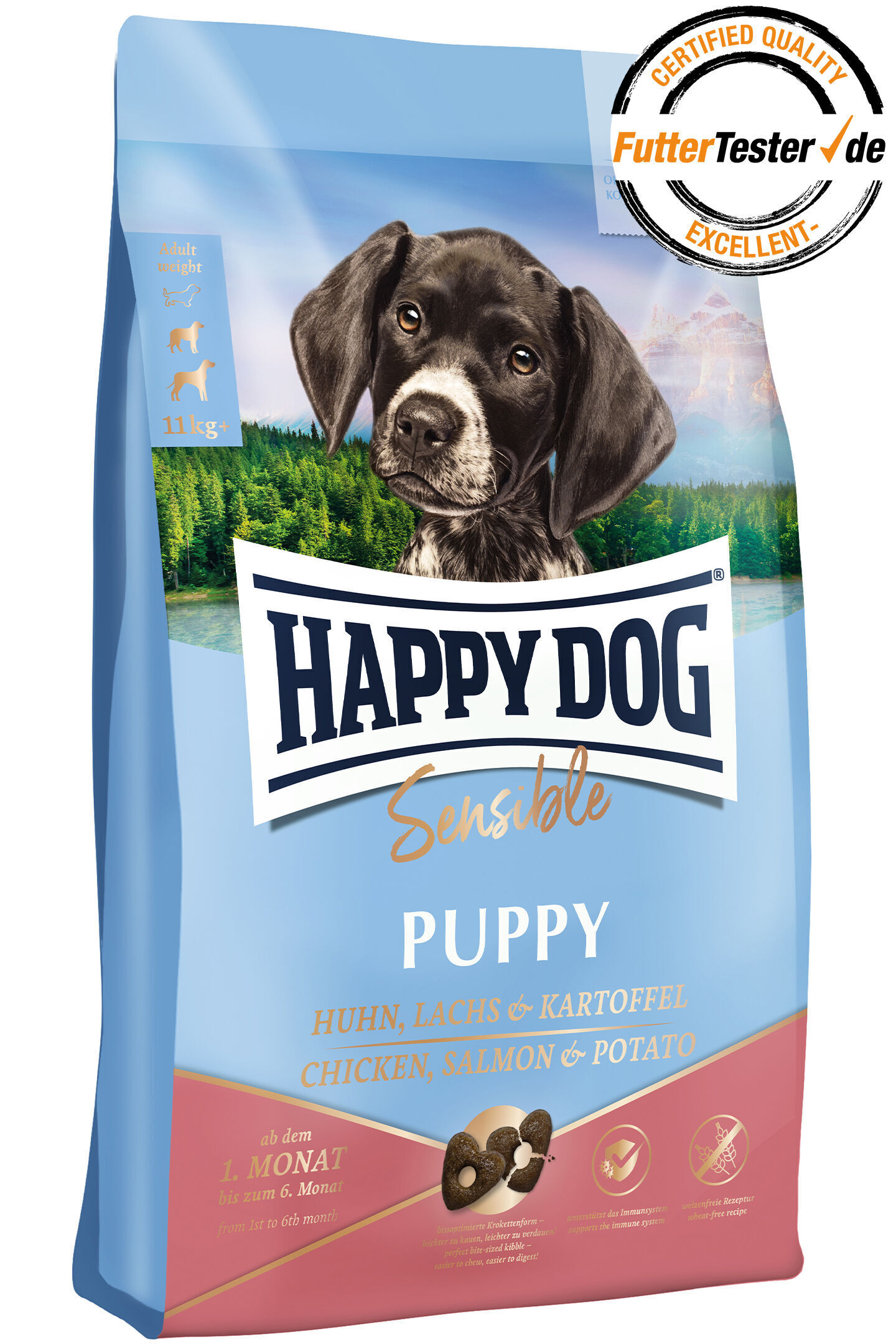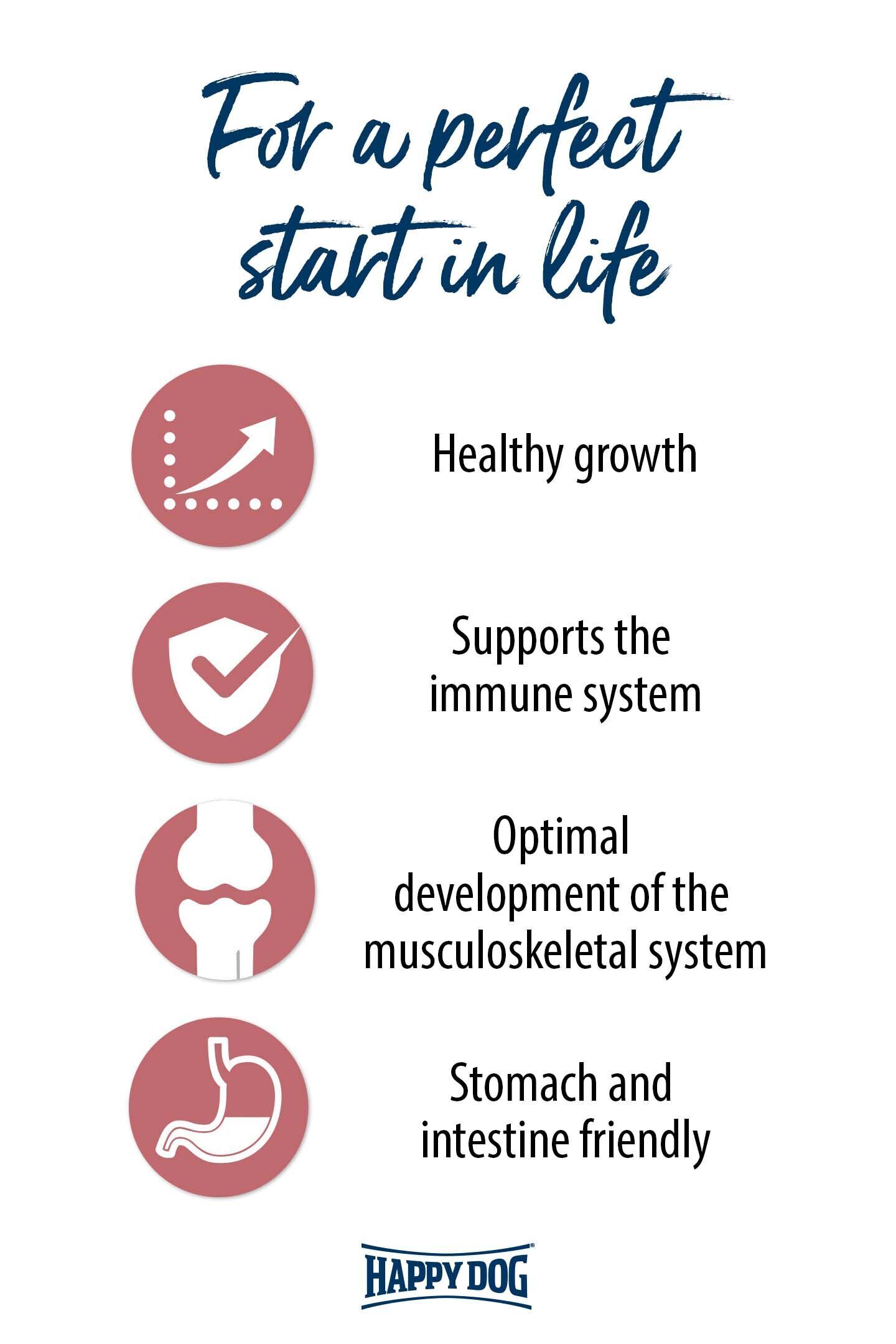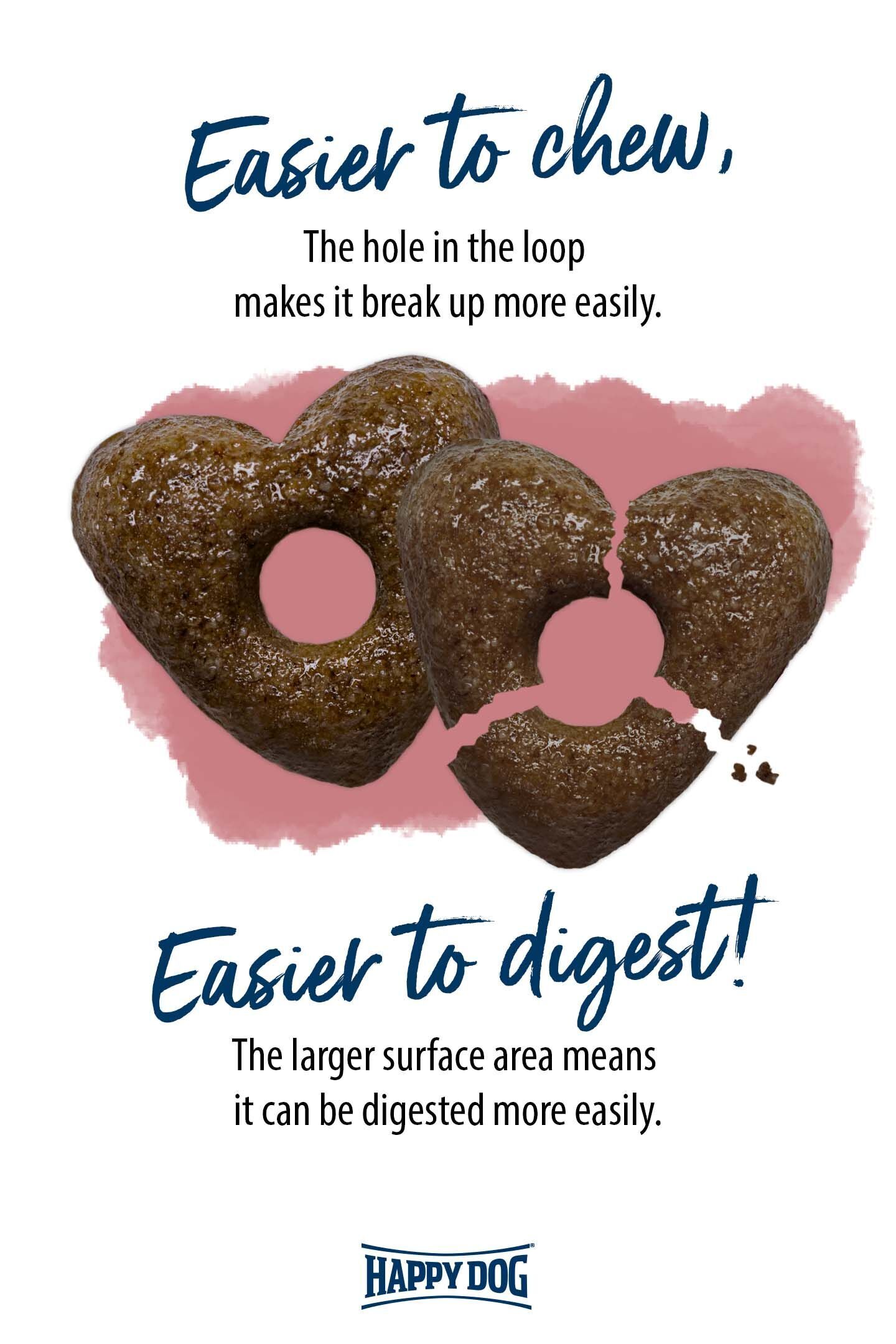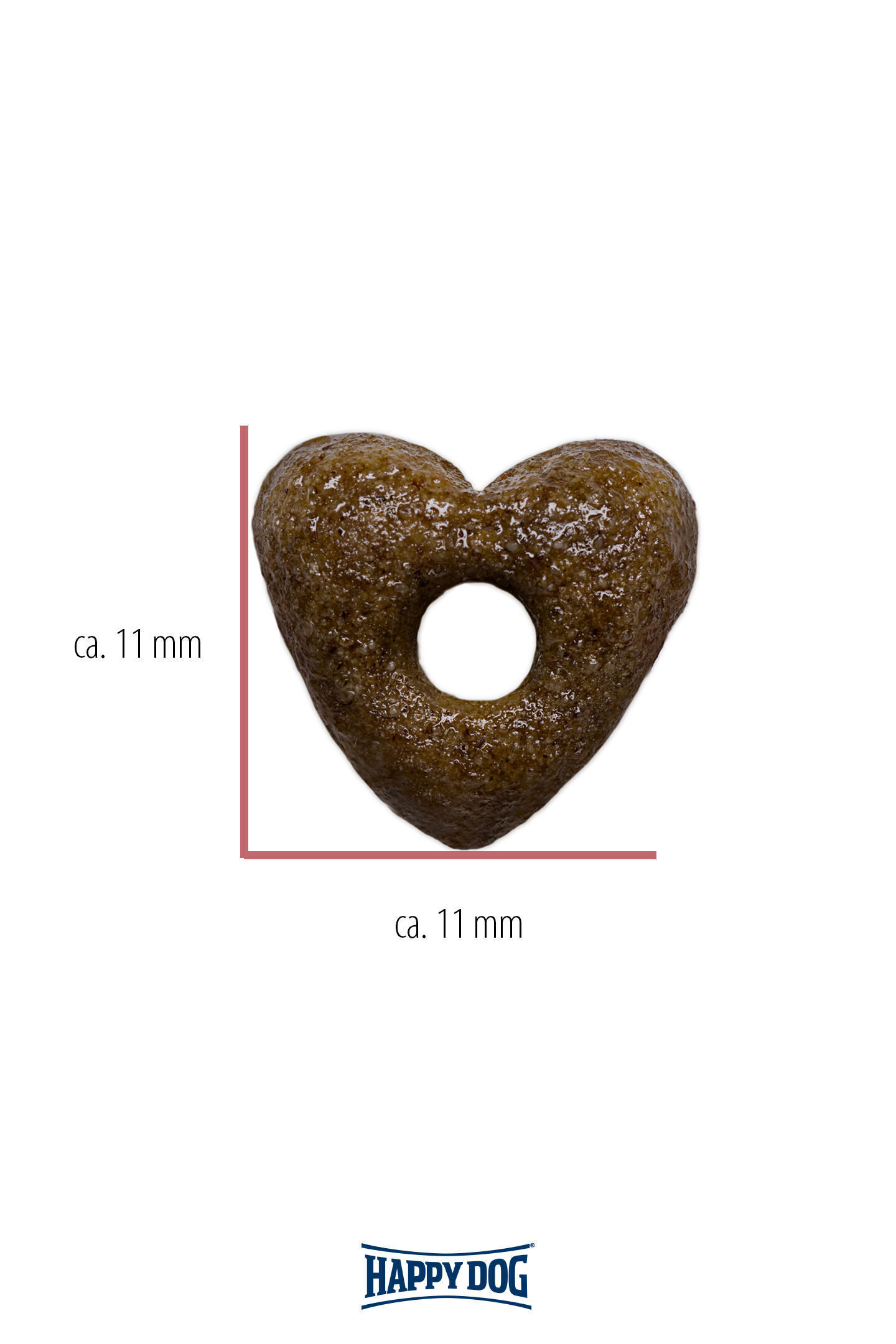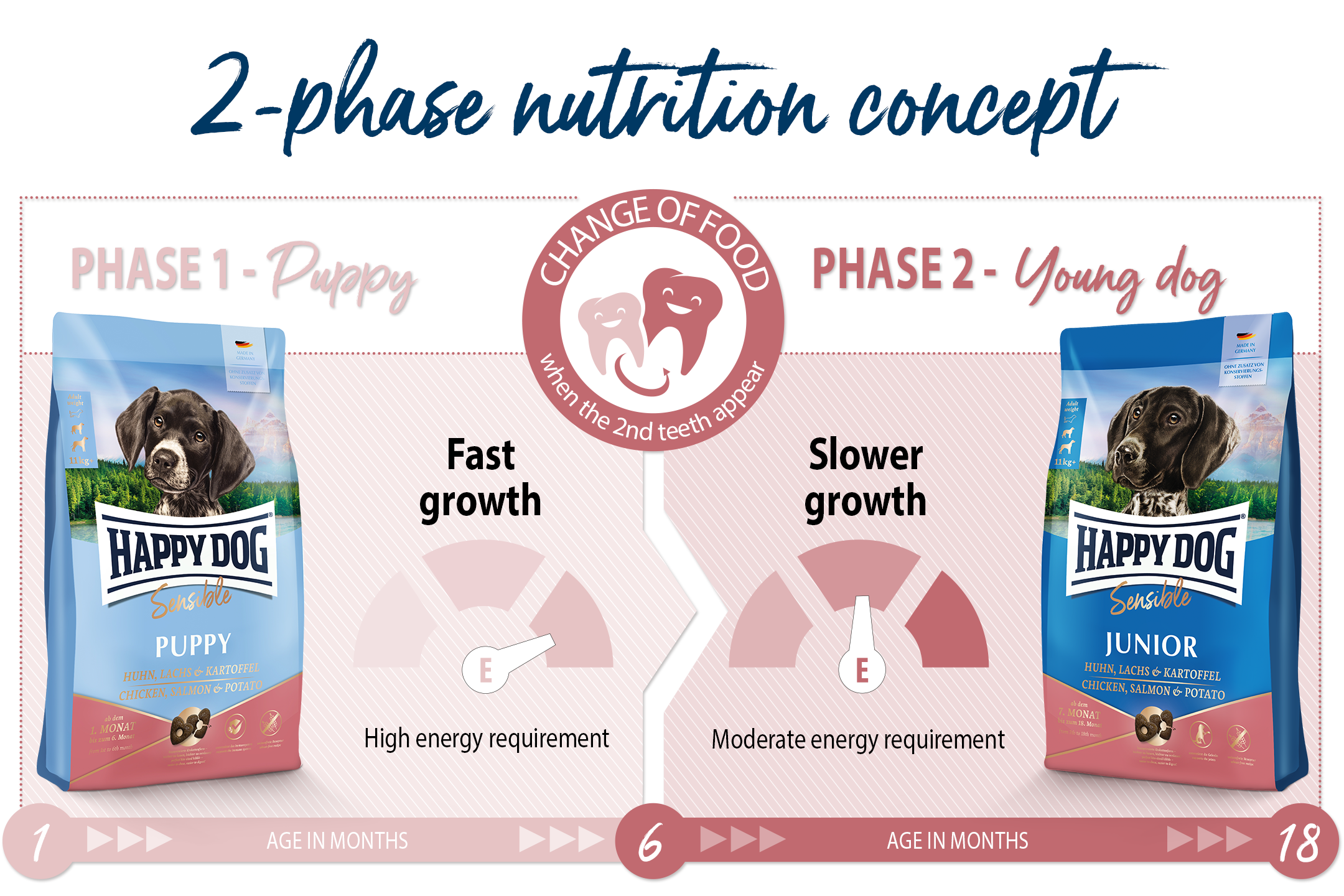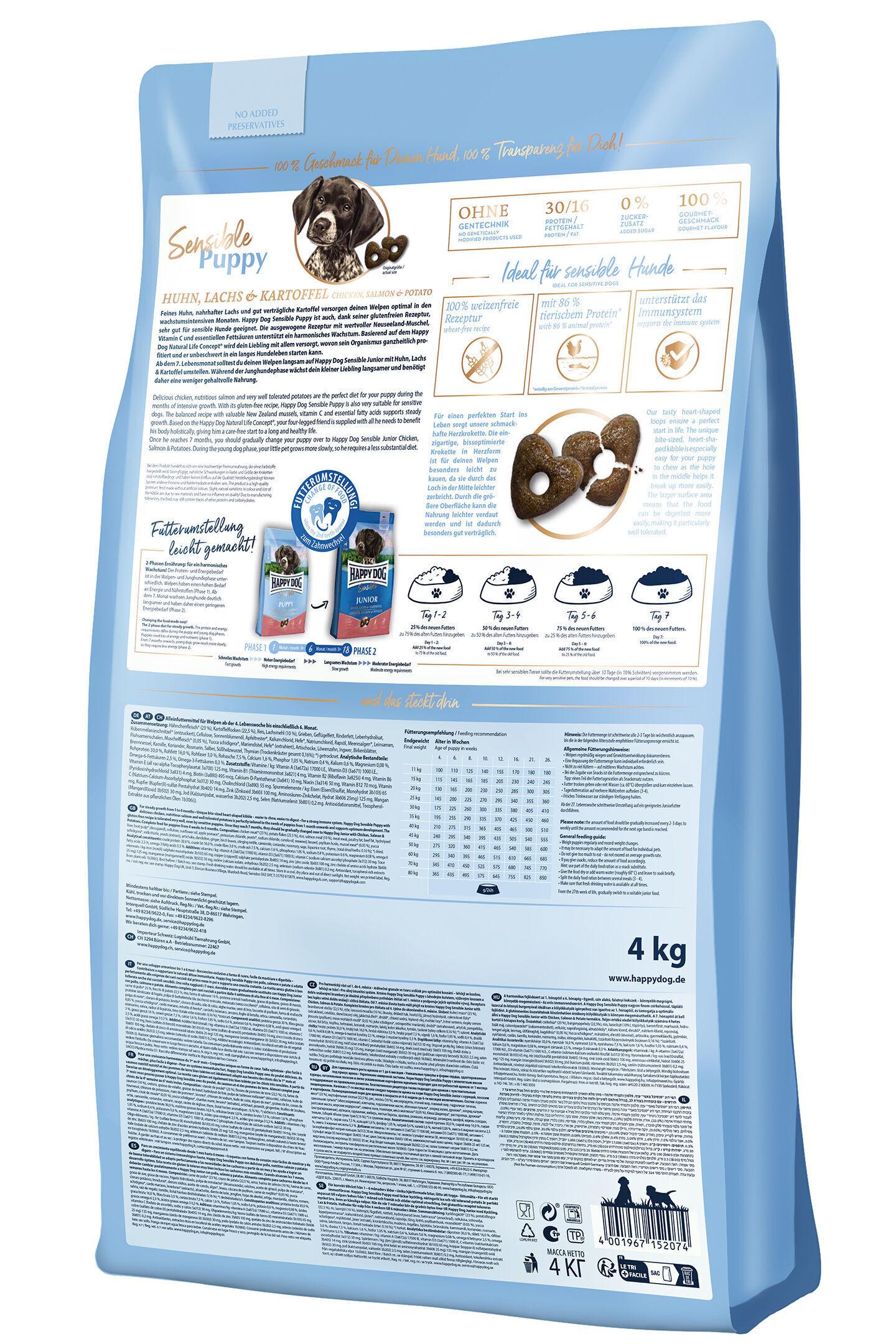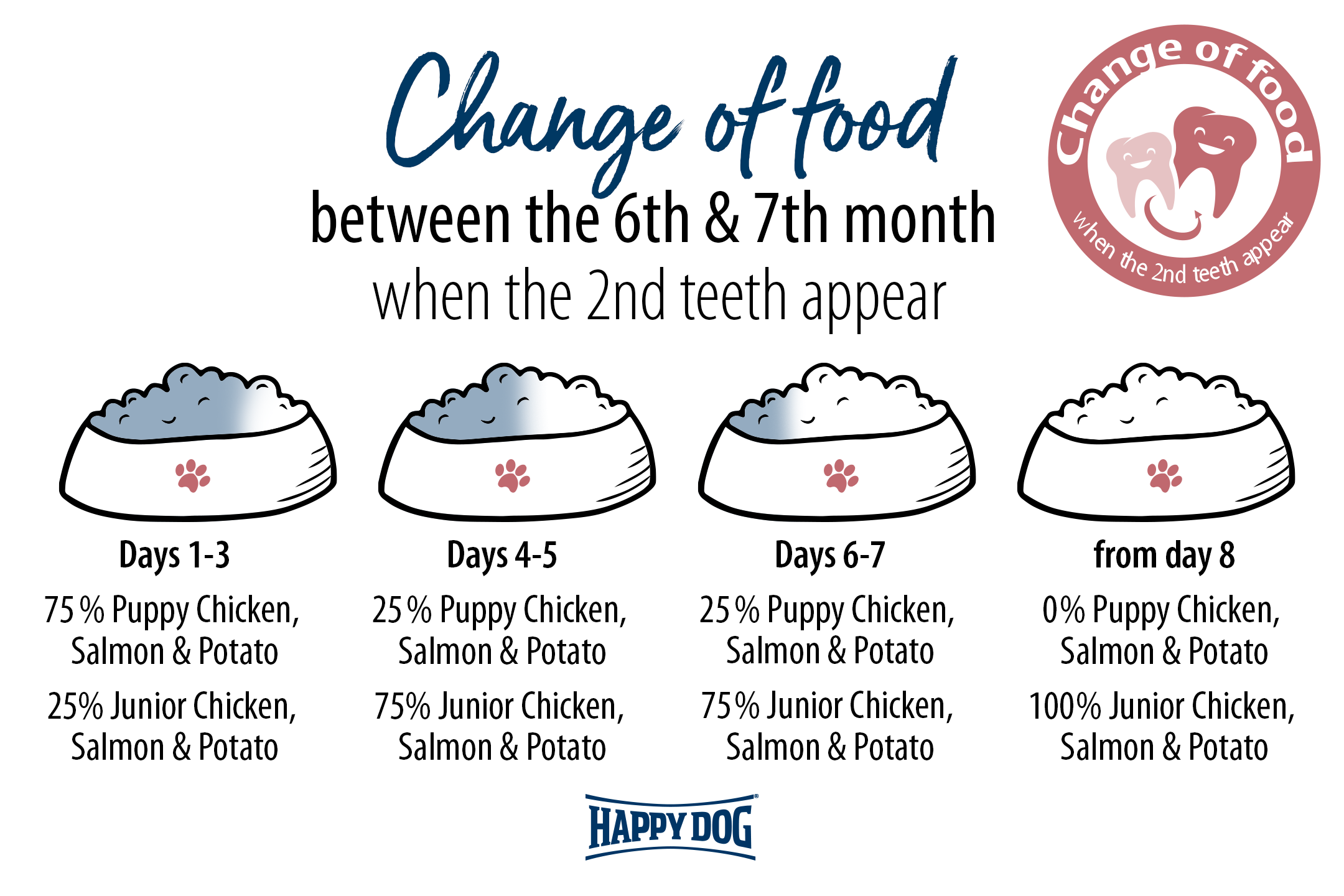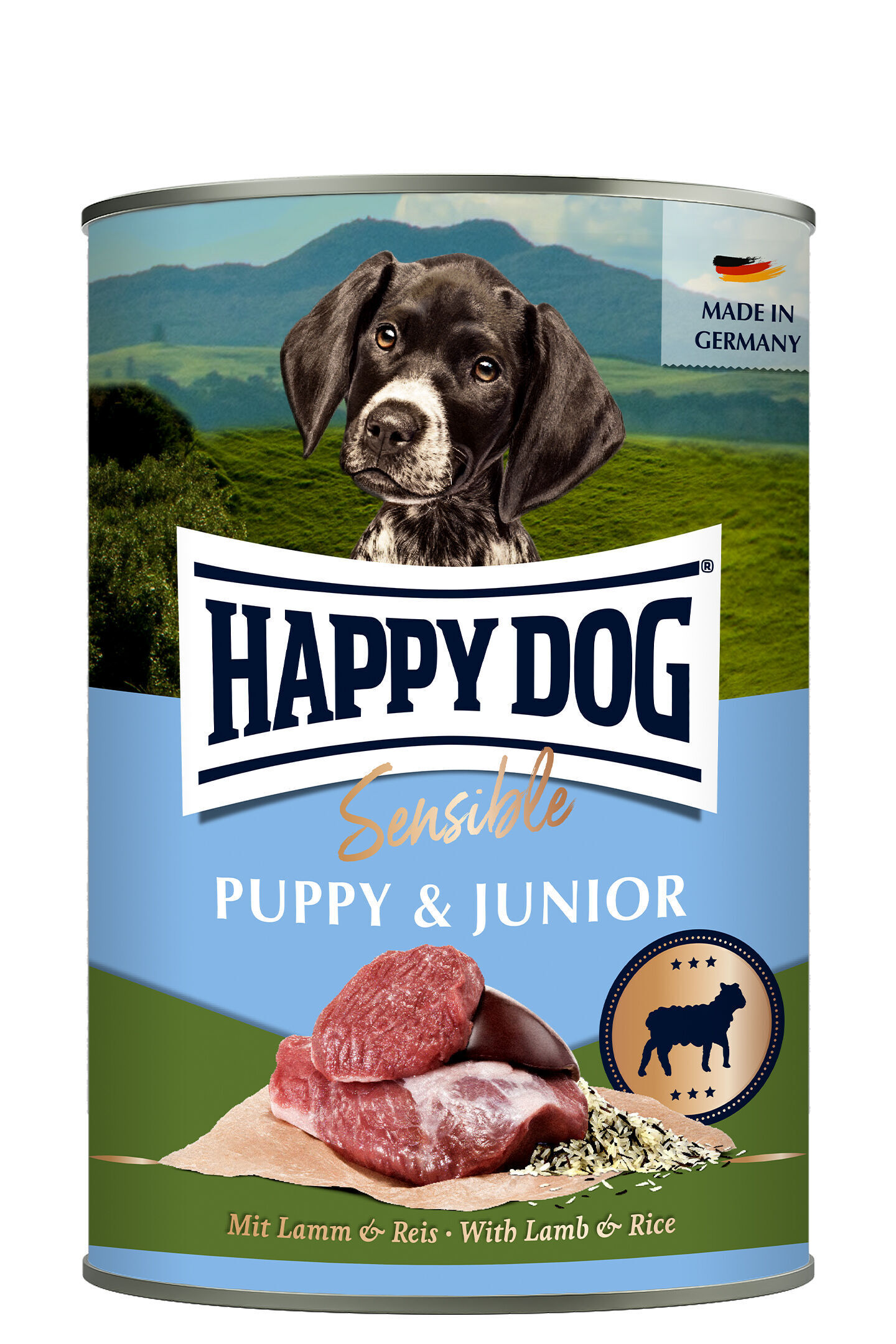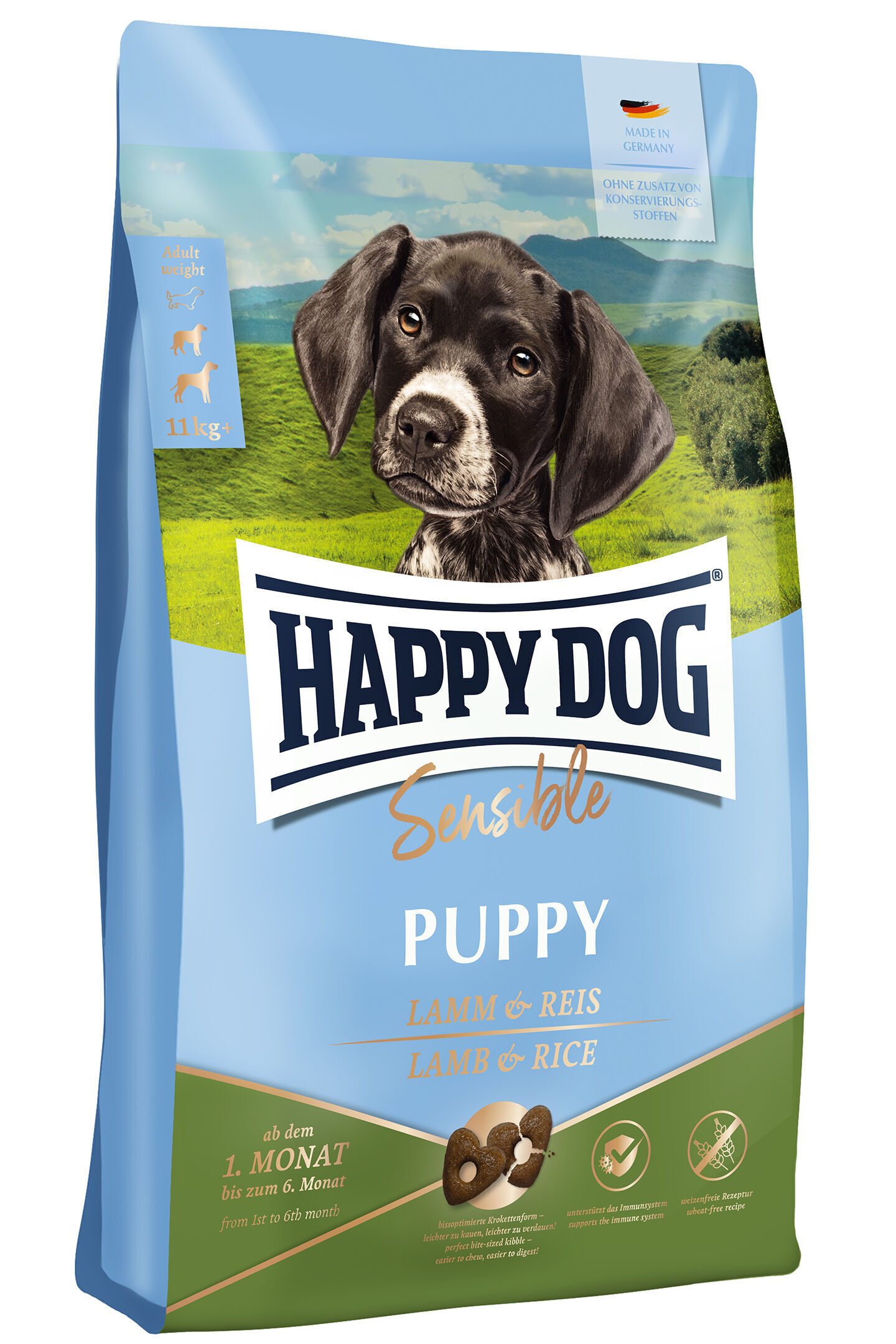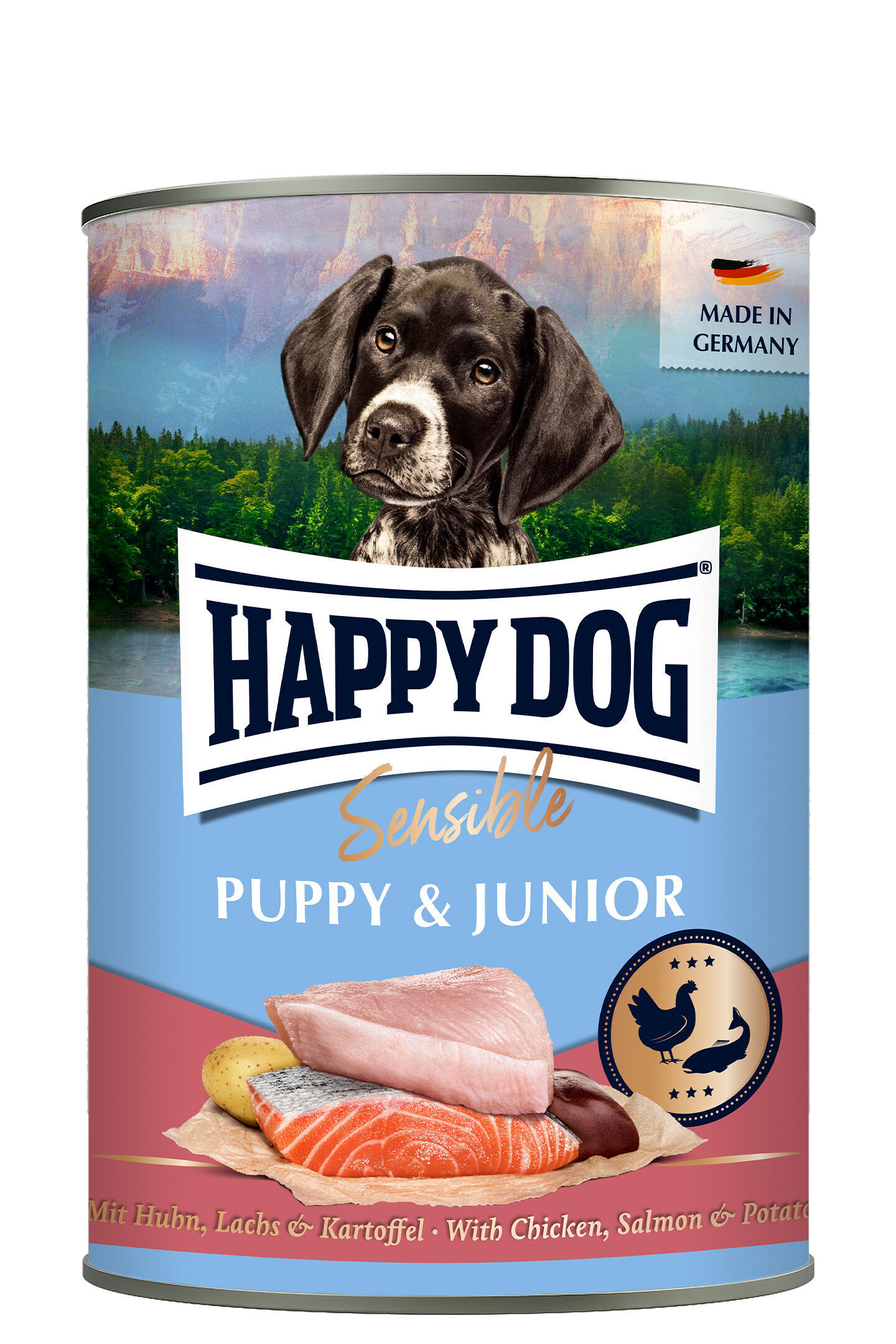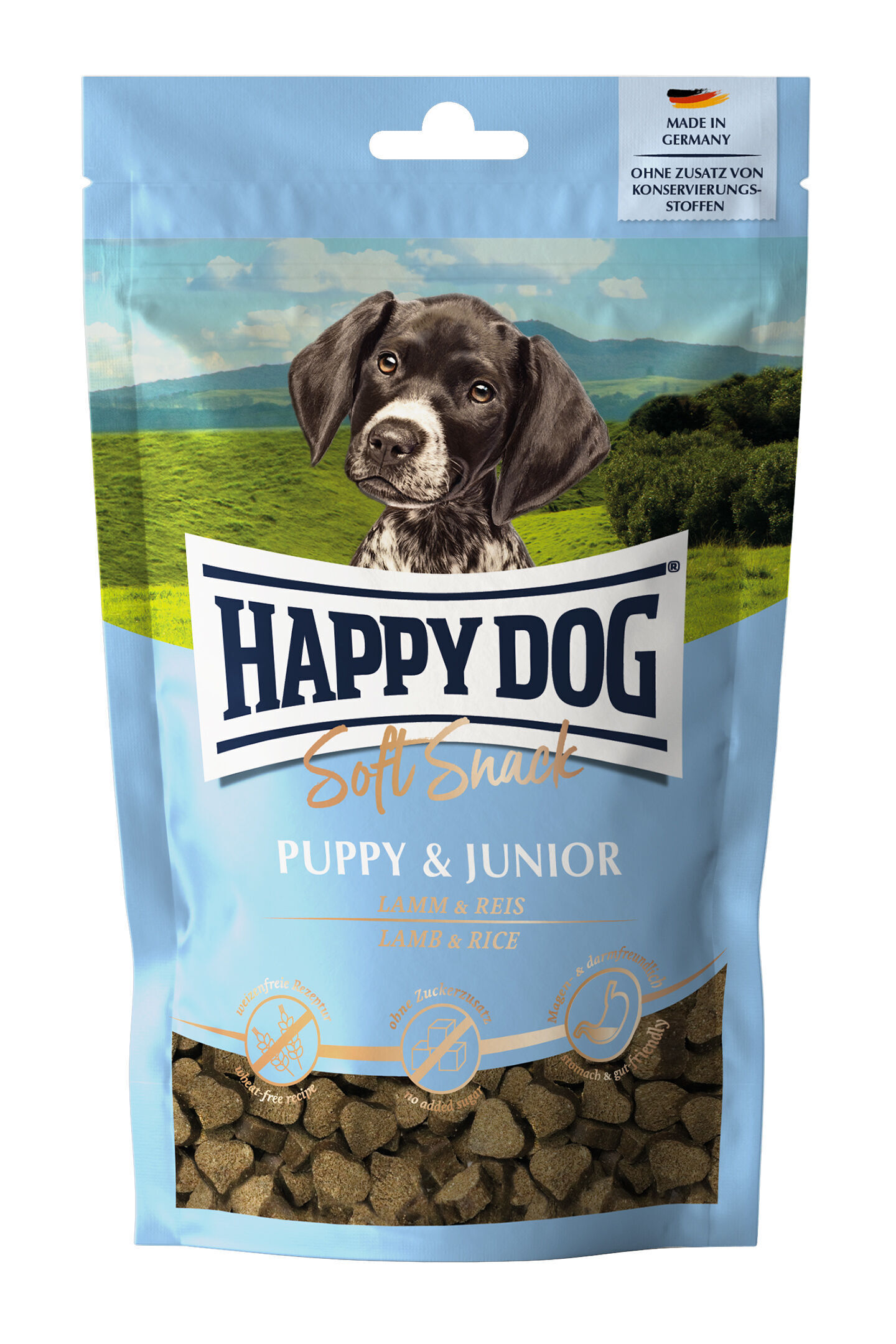Sensible Puppy - Chicken, Salmon & Potato
- Supports the immune system
- Optimal for skin and coat
- Gluten-free formulation
- Especially tasty
High-quality complete food for sensitive puppies with chicken, salmon & potato
As a puppy, your four-legged friend needs a nutrient-rich diet so that it is optimally nourished in the first few months. This is because your little darling is in the main growth phase from 1 to around 6 months of age. That's why Happy Dog dog food is particularly nutritious and rich during this growth-intensive period.
Why is Happy Dog puppy food with chicken and salmon ideal for your puppy?
The new Sensible Puppy Chicken, Salmon & Potato food is perfectly tailored to your puppy's needs - and is particularly suitable for dogs with sensitive stomachs. The dry food is gluten-free and the potato it contains is very well tolerated: together with the tasty chicken and nutritious salmon, this forms an optimally digestible complete diet for puppies. We make sure that our food contains the optimum combination of nutrients to support your puppy's growth in the best possible way. The New Zealand mussel meat, for example, is good for the joints and the added herbs are good for the gastrointestinal tract of four-legged friends. This wholesome food provides your dog with everything it needs as a puppy - for healthy growth and a shiny coat.
How long should your puppy be fed Sensible Puppy Chicken, Salmon & Potato?
Happy Dog Sensible Puppy Chicken, Salmon & Potato is suitable as a complete food from the 4th to the 27th week of your puppy's life. After that, you should gradually switch your dog to a suitable food for young dogs - such as Happy Dog Sensible Junior Chicken, Salmon & Potato.
Our heart-shaped kibble with a hole in the centre: Why is that?
The hole has two advantages: The kibble breaks more easily and is easier to chew. In addition, the croquettes have a larger surface area and can be broken down and digested more easily by the stomach and intestines. Both of these factors support good and healthy digestion.
Complete food for puppies of medium to large breeds from 11 kg adult weight. For feeding from the 4th week of life up to and including the 6th month.
| Final weight in kg |
4 W | 6 W | 8 W | 10 W | 12 W | 16 W | 21 W | 26 W |
| 11 | 100 | 110 | 125 | 140 | 155 | 170 | 180 | 180 |
| 15 | 115 | 145 | 165 | 185 | 205 | 230 | 240 | 245 |
| 20 | 130 | 165 | 200 | 230 | 250 | 285 | 300 | 305 |
| 25 | 145 | 200 | 225 | 270 | 295 | 340 | 355 | 360 |
| 30 | 175 | 225 | 260 | 300 | 335 | 380 | 405 | 410 |
| 35 | 195 | 255 | 290 | 335 | 370 | 425 | 450 | 460 |
| 40 | 210 | 275 | 315 | 365 | 405 | 465 | 500 | 510 |
| 45 | 240 | 295 | 340 | 395 | 435 | 505 | 540 | 555 |
| 50 | 275 | 320 | 360 | 415 | 465 | 540 | 585 | 600 |
| 60 | 295 | 340 | 395 | 465 | 515 | 610 | 665 | 685 |
| 70 | 345 | 410 | 450 | 525 | 575 | 680 | 745 | 770 |
| 80 | 365 | 435 | 495 | 575 | 645 | 755 | 825 | 850 |
W = Weeks
From 27 weeks slowly change over to a suitable Junior food.
Please note: the amount of food should be gradually increased every 2-3 days to weekly
until the amount recommended for the next age band is reached.
General feeding guide:
• Weigh puppies regularly and document weight development.
• It may be necessary to adjust the amount of food for individual pets.
• Do not give too much to eat – make sure your dog grows at a moderate rate.
• If you give snacks, reduce the amount of food accordingly. Hint: use part of the daily food ration as a snack substitute.
• Give the food dry or add warm water (roughly 60° C) and leave to soak briefly.
• Split the daily food ration between several meals (3-4).
• Fresh drinking water should be available at all times.
Chicken meat* (23 %), potato flakes (22.5 %), rice, salmon meal (10 %), meat meal, poultry fat, beef fat, hydrolysed liver, beet pulp* (desugared), cellulose, sunfl ower oil, apple pomace*, potassium chloride, yeasts*, sodium chloride, canola oil, seaweed, linseed, psyllium husks, mussel meat* (0.05 %), yucca schidigera*, yeasts (extract), milk thistle, artichoke, dandelion, ginger, birch leaves, stinging nettle, camomile, coriander, rosemary, sage, liquorice root, thyme, (total dried herbs: 0.16 %); *) dried.
Crude protein 30.0 %, crude fat 16.0 %, crude fibre 3.0 %, crude ash 7.5 %, calcium 1.6 %, phosphorus 1.05 %, sodium 0.4 %, potassium 0.6 %, magnesium 0.08 %, omega 6 fatty acids 2.5 %, omega 3 fatty acids 0.3 %
Vitamins/kg:
vitamin A (3a672a) 17000 IU, vitamin D3 (3a671) 1000 IU, vitamin E (all-rac-alpha-tocopheryl acetate 3a700) 125 mg, vitamin B1 (thiamine mononitrate 3a821) 4 mg, vitamin B2 (riboflavin 3a825ii) 4 mg, vitamin B6 (pyridoxine hydrochloride 3a831) 4 mg, biotin (3a880) 495 mcg, calcium-d-pantothenate (3a841) 10 mg, niacin (3a314) 50 mg, folic acid (3a316) 3 mg, vitamin B12 70 mcg, vitamin C (sodium calcium ascorbyl phosphate 3a312) 30 mg, choline chloride (3a890) 55 mg.
Trace elements/kg:
iron (iron(II) sulphate monohydrate 3b103) 65 mg, copper (copper(II) sulphate pentahydrate 3b405) 14 mg, zinc (zinc oxide 3b603) 100 mg, zinc chelate of amino acids, hydrate 3b606 25 mg) 125 mg, manganese (manganese(II) oxide 3b502) 30 mg, iodine (calcium iodate, anhydrous 3b202) 2.5 mg, selenium (sodium selenite 3b801) 0.2 mg
Antioxidant, tocopherol-rich extracts from plant oils 1b306(i)

